Finding your people at summer school
Several of our members attended the Equator Research School, a fully funded five-day programme for researchers and students from minority ethnic groups. Here, they share their experiences and demonstrate why these initiatives are so important.
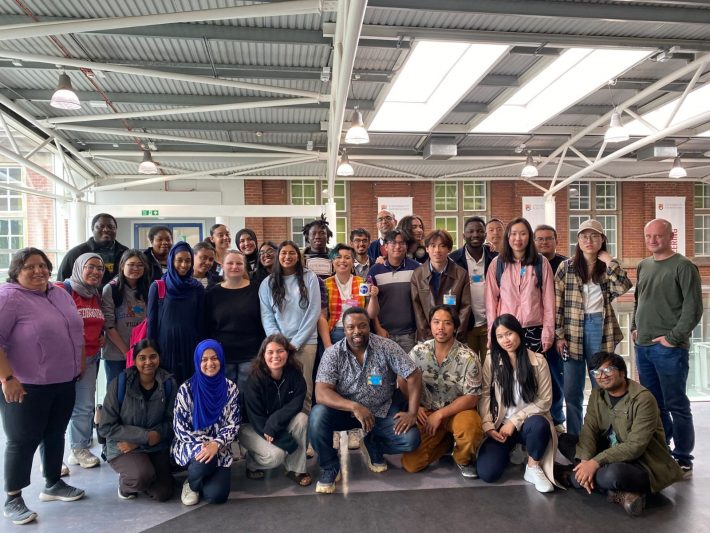
The Equator Research School is an initiative within the Geography, Earth and Environmental Sciences (GEES) that hopes to bring down the barriers to ethnic and minority participation and retention in GEES, especially in postgraduate research and further academia. The school brings together researchers and students from minority ethnic groups to build a strong support network.
The five-day long programme, which is now in its second year, is divided into two streams: undergraduate (undergraduate and master’s students) and postgraduate (PhD & postdoctoral students). Both streams included workshops, networking sessions and presentations from a variety of speakers and experts in academia and industry. The programme was structured to close the knowledge and skills gap in research by providing relevant information and training such as introducing potential career paths, navigating PhD applications, effective grant writing and interview skills. Each session was carefully developed to address common challenges encountered by the participants at different stages of their academic life. Additionally, the programme helped connect participants with experts in academia and industry and provided a safe and supportive network that allowed for open discourse regarding shared experiences as well as career advice and opportunities. The last day of the school took the form of a mini conference, where participants presented a five minute ‘flash talk’ on their research topic, passion or subject of interest.
It is important to note that the Equator initiative is fully funded; accommodation was provided for all the participants with no cost, whilst travel and sustenance were reimbursed. On top of that, participants were offered a stipend to cover the participants’ loss of income during those five days.
It was amazing to finally find people who are the same as me, to share my experiences, struggles and to build a strong support network
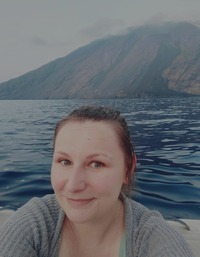
Gabby
Equator Research School helped me to become more confident in myself and showed me that I, as a minority student, can belong in GEES and academia. The school felt so safe and inclusive, and it was amazing to finally find people who are the same as me, to share my experiences, struggles and to build a strong support network. Equator reassured me that I am not alone in my academic journey.
I was lucky to have participated in both editions of Equator. Last year, I attended the undergraduate stream for which I am so grateful. I learned so much about how to apply for a PhD, starting from applications all the way to interviews. Before Equator, I didn’t know much about the process of PhD applications – I had applied to many and after facing countless rejections it was hard not to give up. However, after following the advice and training Equator provided, which was never available to me before, I regained confidence in myself and successfully secured a place on my dream PhD project.
Now, as a new PhD student, I attended Equator 2.0, to equip myself with information and advice needed to be successful on my PhD journey. The highlight of the school, for me, was the grant and fellowship writing workshop, run by Lucy Kender from GrantCraft. I honestly didn’t know much about different types of fellowships and grants, especially how to find them, what they stand for, and how to write an ideal application.
Equator made me realise that I want to get involved in DEI and help open opportunities to underrepresented and minority groups in GEES, in the hope that no one would feel lost and alone, like I had felt before.
I left with an increased sense of belonging and increased confidence
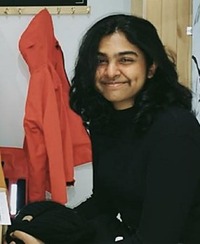
Toniieshaa
The last thing on my mind when considering a degree in marine biology was whether I would be a minority in this space. I was only focused on pursuing my passion and so I was completely caught off guard when I turned out to be the only Asian person in the room. Paired with the fact that I didn’t have a marine science background, I constantly felt like I didn’t belong. This was amplified by looks that seemed to imply that I didn’t quite fit in.
This programme felt like a break from all of that. From day one, I felt comfortable talking to people and gained so much insight from everyone, especially since I was networking with people from different levels in their careers. Just being able to bounce new and innovative ideas off each other was great and helped to build a supportive network who I feel will be there throughout my career.
We had many incredibly insightful workshops. I really enjoyed the whistlestop tour of applying for a PhD session led by Sam Giles, followed by the PhD applications from a DTP’s perspective led by Sarah Greene with Peter Kraftl and Jenni Barclay. I had a vague idea of PhDs, but these sessions helped to really define the entire process including what a PhD is, where to find projects, how to put in an application and funding options. This session really helped to make the entire process more transparent and less daunting.
Overall, I left with an increased sense of belonging in the GEES community, increased confidence that I am on the right path, and with a safe and supportive network. I am grateful to have had this experience early on in my career.
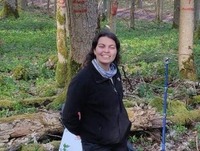
Millie
I am about to start a PhD looking at Arctic forest/tundra ecology using remote sensing and modelling techniques. Attending Equator before starting my PhD has allowed me to think about my PhD not only as a training opportunity but also as an opportunity to develop myself for the next steps. I also attended the previous edition of Equator under the masters and undergraduate stream.
It was great to hear from academics who have been through the process of securing different fellowships as this is hard to find information about. Talking about fellowship expectations and the application process provided a lot of insight into the process of not only applying but developing the proposal in the first place. Knowing what is considered a ‘good’ candidate for each fellowship underlined what could be useful to focus on during my PhD. It gave real insight into the different fellowships and what makes them attractive and why.
Having these types of events is something that is incredibly useful as the landscape for undergraduate and post-PhD opportunities changes. I had a strong interest in pursuing research before I even came to university and spent almost three years unsuccessfully trying to obtain internships. I eventually had to go to the US for a research internship to gain any meaningful experience. There are changes to doctoral recruitment to increase ethnic minorities but this is dependent on the DTP/CDT and some have been more proactive than others. Events like this help undergraduates and PhD students understand what will help them succeed at each stage and can begin to help to mitigate the ‘leaky pipeline’ that exists for BAME students in GEES.
Having accommodation, travel and food covered was a privilege, as it really allowed me to focus on getting the most out of the summer school
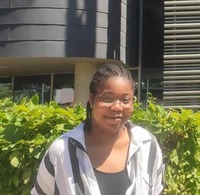
Tiffany
My undergraduate studies were in electronic engineering and my master’s was in physics. Growing up in a deprived area of London, there weren’t many opportunities to learn about GEES outside geography classes. However, during my master’s, I learnt more about earth sciences and realised that it was a field that I wanted to be a part of.
As someone trying to change fields, one of the barriers has been a lack of support, so when I came across the advertisement for the Equator Summer School, I knew I had to apply! Having accommodation, travel and food covered was a privilege, as it really allowed me to focus on getting the most out of the summer school without having to worry or stress about finances which is something that has prevented me from participating in other summer schools and research opportunities.
The highlight of the Equator Summer School for me was the career day. Through one of the panellists, I was fortunate enough to be put in contact with their colleague who is a respected figure in the field I am trying to enter (and someone who’s career I admire). When I signed up to Equator, I would never have guessed it would have led to that and I cannot express how grateful I am.
Another highlight was the conference at the end of the summer school where each participant gave a short presentation on a topic of their choice. I used this as an opportunity to talk about Ghana’s potential role in the energy transition. To have the freedom to present a combination of my interests and my heritage without judgement was amazing.
It was full of lessons in life way beyond just academia
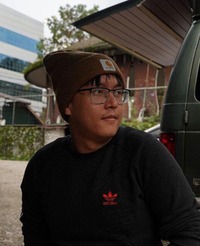
Allen
My biggest takeaway from Equator was the inspiration and motivation I got from the speakers, organisers, and my fellow students. I was struggling in almost every aspect during my third and final year financially, mentally, and it was becoming detrimental to my physical health. My different background meant I had no one to share my struggles with, someone who could relate and truly understand my situation.
Equator revived my drive for academia. I was able to listen to stories from speakers of various backgrounds. Stories of success, failure, and most importantly, of trying again and again. Tales told by smiling faces, but also some with tears in eyes. It was full of lessons in life way beyond just academia. I was delighted to have met people who share the same roots as mine, as this is something that made me feel alone in this field of study. They provided answers to my concerns in issues they are going through or have already experienced. They shared their minds and gave good advice. They are people who I respect, look up to, and I am looking forward to interacting with them in the future inside or outside academia.

Justin
Equator was an amazing experience. As a second year PhD student, not only did it provide me with useful training in grant applications, applying for fellowships and science communication, but it allowed me to meet such a diverse group of incredible scientists who inspire me to continue on this path despite all the barriers that people of colour face in academia and research. There is a wonderful feeling that emerges when people are able to connect over similar shared lived experiences and feel comfortable being themselves.
A particular highlight of the programme was the careers day, where academics and researchers of colour were brought in to discuss their career trajectories, the obstacles they faced and the lessons they learnt. This was incredibly useful for me as an early career researcher, and provided insight into navigating careers in research and academia as a person of colour.
There is a racial diversity crisis within our field, a result of both historic systemic racism that impacts academia as a whole but also subject-specific issues that make many disciplines within GEES less inclusive to many underrepresented groups, but this isn’t new news. If we actually want to widen participation in the environmental sciences for marginalised communities, it is essential that initiatives such as Equator exist and are consistently funded.
I recognised the power of diverse voices in shaping innovative solutions to the complex challenges our world faces
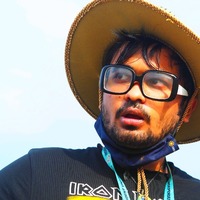
Tahsin
I was at a crossroads in my academic career before embarking on my Equator journey. The prospect of pursuing a PhD and entering the world of academia weighed heavily on my mind. The Equator Research School shone brightly as a beacon of opportunity, providing a venue for me to connect with experts and fellow students who shared my passion and vision.
The emphasis on making connections was at the heart of the Equator experience. The chance to network with mentors, experts, and fellow participants from various ethnic and minority backgrounds was priceless. The supportive and safe environment encouraged open dialogue about shared experiences, goals, and challenges. This nurturing network became a lifeline, offering insights, advice, and encouragement that extended beyond the program’s boundaries.
Among the most enriching facets of my Equator adventure were the life-long mentors I met. Seasoned academics and industry leaders generously shared their wisdom and insights, serving as beacons of guidance on my academic journey. Their mentoring extended beyond the programme, providing unwavering support as I struggled with the complexities of my research, career choices and life in general.
While Equator propelled me academically, its impact extended beyond research and academia. The experience helped me develop greater self-awareness and resilience. Engaging with people from various backgrounds broadened my perspective and cultivated empathy. I recognised the power of diverse voices in shaping innovative solutions to the complex challenges our world faces through candid conversations and shared experiences.
Other initiatives to get involved with
REED Network
britishecologicalsociety.org/reednetwork
NHM Explorers Programme
twitter.com/NHM_Explorers
Flock Together (bird walking group for PoCs)
flocktogether.world
Black Women in Science Network
bwisnetwork.co.uk
Equator Research School
equatorresearchgroup.wordpress.com/research-school
Like what we stand for?
Support our mission and help develop the next generation of ecologists by donating to the British Ecological Society.